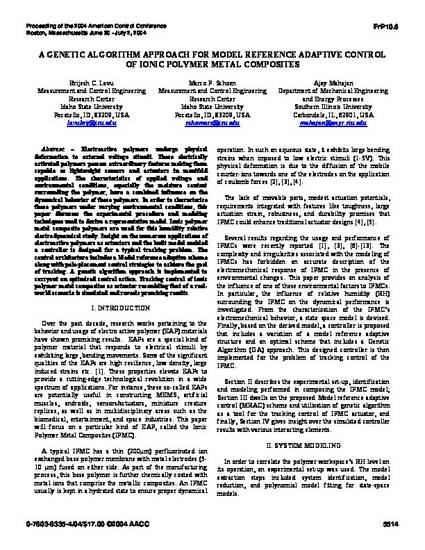
Electroactive polymers undergo physical deformation to external voltage stimuli. These electrically activated polymers possess extraordinary features making them capable as lightweight sensors and actuators in manifold applications. The characteristics of applied voltage and environmental conditions, especially the moisture content surrounding the polymer, have a combined influence on the dynamical behavior of these polymers. In order to characterize these polymers under varying environmental conditions, this paper discusses the experimental procedure and modeling techniques used to derive a representative model. Ionic polymer metal composite polymers are used for this humidity relative electrodynamical study. Insight on the numerous applications of electroactive polymers as actuators and the built model enabled a controller is designed for a typical tracking problem. The control architecture includes a model reference adaptive scheme along with pole-placement control strategies to achieve the goal of tracking. A genetic algorithm approach is implemented to carryout an optimized control action. Tracking control of ionic polymer metal composites as actuator resembling that of a real-world scenario is simulated and reveals promising results.
Available at: http://works.bepress.com/ajay_mahajan/9/
